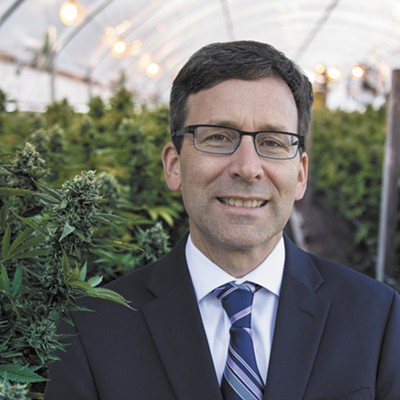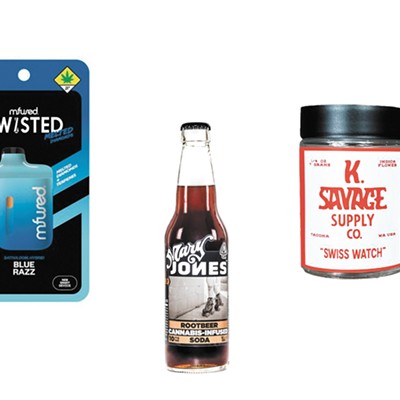Nearly a decade into its existence, the cannabis industry in Washington is undergoing a massive upheaval when it comes to workers' rights.
UFCW 3000, a major union representing more than 50,000 health care, grocery and retail workers, among others, has moved into the cannabis industry. The union already represents a handful of cannabis retailers on the west side of the state and is setting its sights on the east side as well.
The union is going through the pre-unionization process with a major Spokane County cannabis producer, which involves multiple elections among employees and a back-and-forth with the federal government's National Labor Relations Board.
Why are cannabis workers looking to unionize? It's simple. They want better working conditions.
"If you can't go to work at a cannabis farm and be happy, something's really wrong with that picture," says Josh Kelsch, Cannabis Project organizer for UFCW 3000.
Kelsch has a long history in Washington's cannabis industry. He started in the medical field, and then helped gather signatures to get recreational cannabis on the ballot in 2012. He's worked for cannabis producers in the state and says he is unhappy seeing current workers who need multiple jobs to support themselves.
"That's not what I helped create this industry for," says Kelsch.
He and UFCW 3000 are now fighting for better pay, safer working conditions and cost of living increases for those who work in Washington's cannabis industry.
A contract brokered by UFCW 3000 for west side cannabis retailer Lux Cannabis guarantees a minimum wage of $16.25, plus tips, as well as an annual raise of 75 cents to adjust for cost of living increases, among other provisions.
This unionizing effort began on the west side a few years ago, but only moved to the east side within about the past year.
"Growing up," says the former west side resident Kelsch, "everybody had a family member or a friend who worked for [the unionized company of] Boeing. Over here, I don't see as big of a labor union to look up to."
The union's largest push is among retailers. Producers are tougher to unionize, as many of their employees are classified as agricultural workers, for whom a separate set of labor laws apply. But that is not stopping them from trying.
"It's the thankless work that keeps these operations running," says Kelsch, of the kind of workers he is hoping to bring under the union's umbrella. ♦




















